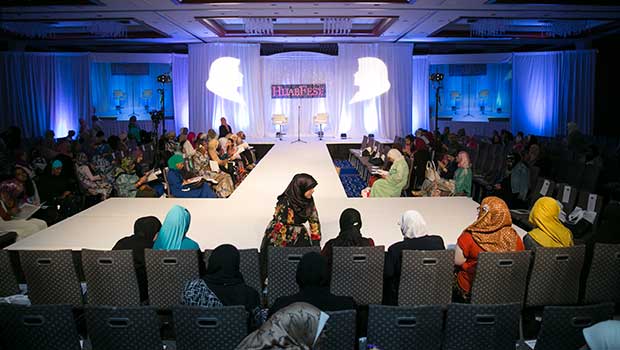Fiqh (jurisprudential understanding) of Minorities is a contemporary terminology for issues that were discussed and presented by earlier fiqh scholars in a widely scattered form. The breadth of this term spans across intrapersonal issues as well as ibaadah (worship) matters. The following is a list of examples of topics covered by the Fiqh of Minorities:
Intrapersonal Issues: family matters, marriage, divorce, inheritance, wills, rights and duties of husband and wife, childcare related issues, extended families, convert Muslims, interfaith marriages, etc.
Ibaadah Issues: prayer timings, Jumu’ah midday prayer timing, combining prayers, praying in a vehicle, Qiblah (praying direction), Zakah (alms-giving) distribution, nisaab (Zakah threshold), tax evasion, insurance, compensation and wages, social welfare, traveling without a mahram (unmarriageable kin), halal zabeehah (animal slaughtering), interfaith dialogues, joining the military, participation in civic and political activism, janaazah (Islamic burial and funeral) matters, traditional and cultural norms and conflicts, citizenship, legal disputes, moon sighting, co-ed education, difference of opinions, schools and sects, etc.
The general details of these issues are not new, though specific circumstances may vary, but many contemporary scholars saw to it that the Masaa’il and Ahkaam (fiqh questions and their decrees) be extracted from the older text of fiqh and be compiled under one heading. Thus, this would allow for easier understanding, study, analysis, and synthesis of the many challenges faced by the practicing Muslims living as minorities. It would also allow for easier focus on their specific circumstances and their special needs within their cultural subtexts. In addition to recompiling previous decrees, the new Fiqh of Minorities would allow for developing and establishing new relevant decrees while fulfilling the following conditions:
Remaining mindful of the conditions and capabilities of the subjects of the decrees and establishing suitability;
Understanding the context time and locale to address the challenges, and as such, the hukm (singular of ahkaam: decree) may vary from one context to another.
It is worthy of noting that in Usool-ul-Fiqh (jurisprudence), takleef (duty or imposition) is the implementation of hukm on a subject; however, there are numerous causes for exception or forgoing of enforcement, such as nisyaan (forgetfulness or mindlessness), jahl (ignorance), al-aafaat as-samawiyyah (the natural disasters), daroorah (necessity), ikraah (compulsion) as well as the expected outcome of living in non-Muslim countries, such as new acceptance of Islam, living where Islamic knowledge is not readily available.
Additionally, urf (norms or culture) plays a major role in shaping the context of the enforcement subject as well as the application of text, which varies from one time, place, and people to another. For example, certain traditions have established a set of objects or things as Islamic symbols; i.e. green color or the crescent. The term musallaa (place of prayer) meant the one place where all people of a locality gathered for an Eid prayer congregation, yet musallaa now refers to a to a smaller, rented or otherwise impermanent place or hall for daily prayers, while a Masjid refers to a permanent entity. As per varying urf practice, a Masjid may only be used for just praying or it may be a hub of numerous activities and services.
Fiqh is the science of deriving and extracting practical application and rules from the authentic sources for the implementation by the masses of Muslims
Reality on the ground and local needs of every place are also incorporated in shaping of the Fiqh of Minority jurisprudence and developing the applicable ahkaam from it. The fundamentals and sources of derivation remain agreeable and firm while the application and the details vary. For example, it is allowed to miss a jama’ah (congregation) for the prayers in poor weather conditions, but what counts as bad weather will differ with different locales, and as such, the ahkaam defined and derived will vary as well.
An important and more controversial issue is related to the division of different countries, states, and areas in different categories and zones by our earlier fiqh scholars; e.g. Dar-ul-Kufr (a non-Muslim or disbelieving state) and Dar-ul-Islam (an Islamic state). This is a fiqh-related issue as well an ijtihaadi (Islamic exegesis) matter. It is important to consider the following points with respect to the categorization of world zones: a. it was introduced in Madinah while the Prophet (pbuh) did not establish it in Makkah; b. the classification cannot exist independently from an existence of a Dar-ul-Islam, which itself has a strict definition and it differs from Dar-ul-Muslimeen (a Muslim state, exclusive or predominant); c. in the present time, this division is not existent and unsuitable, especially in the sense of a Dar-ul-Harb (a warring state). In fact, other categories may be more applicable, such as Dar-ul-Amaan or Dar-as-Sulh and Dar-ad-Da’wah; d. presently, numerous non-Muslim countries have opened up doors for all for citizenship, and they provide equal rights, freedom of faith and association for Muslims and others. The development and advancement of the Fiqh of Minorities will continue to lead towards more relevant and refined classifications and more suitable ahkaam will be derived therein.
Some scholars have disagreed with the new terminology given to the Fiqh of Minorities because that term has not been used in the past, but differing about terminology is no cause to overlook the necessity and applicability of this embranchment. As the Usool-ul-Fiqh scholars have stated: “No Quarrelling over Terminology”.
Fiqh of Minority is a step in the right direction and it can help the Muslims deal with the ever-growing challenges faced by Muslims living as minority communities
Fiqh is the science of deriving and extracting practical application and rules from the authentic sources for the implementation by the masses of Muslims. It seeks yusr (ease) while maintaining balance and keeping extremism away, which leads to fanaticism and disorder. Fiqh is a tool for attaining wihda (unity) as well when understood and applied correctly. It establishes the framework of prioritization, major issues ahead of minor ones, as well as a logical classification level of application, such as wajib (obligatory), sunnah (recommended), mubaah (allowed), makrooh (distasteful) and haraam (prohibited). It also provides guidelines for coexisting and maintaining amicable relations with each other while differing on details. Conflict emerges with faulty understanding of fiqh, mixing of fiqh’s practical rules with aqeedah (creed and belief) matters and with not establishing the priorities correctly.
Fiqh of Minority is a step in the right direction and it can help the Muslims deal with the ever-growing challenges faced by Muslims living as minority communities while remaining faithful to the practice of Islamic teachings along with a better appreciation and acceptance of accepted differences of opinion amongst themselves.
Fiqh of Minority may also serve as a great dawah (calling to Islam) tool, develop characters of individuals to cope with societal needs and challenges, and to organize the collective lifestyle and focus towards moral excellence. It is one way to show humanity that Islamic framework adapts to the challenges of all times and places and it provides a remarkable solution for all.





